Olympics officials overrule French govt. ban on Muslim hijab
Olympics officials have overruled the French government’s ban on Muslims wearing hijab headscarves during the 2024 Paris Games.
The International Olympic Committee (IOC) declared on Friday that athletes participating in the Paris 2024 Olympic Games were free to wear a headscarf known as a hijab in the athletes’ village, just days after France’s sports minister banned it for the host country’s athletes.
French Sports Minister Amelie Oudea-Castera said earlier this week that French athletes were required to abide by the country’s principles of secularism, thus banning female athletes from wearing hijab during the Paris Olympics.
France, which hosts one of Europe’s largest Muslim communities, has implemented laws designed to adhere to the country’s principle of secularism, known as “laicite”. On Sunday, Oudea-Castera echoed the secular principle insisted by French President Emmanuel Macron, saying the government was opposed to any display of religious symbols during games.
On Sunday, Oudea-Castera echoed the secular principle insisted by French Presein Emmanuel Macron saying the government was opposed to any display of religious symbols during games.
"For the Olympic Village, the IOC rules apply," an IOC spokesperson said. "There are no restrictions on wearing the hijab or any other religious or cultural attire."
The vast majority of the approximately 10,000 athletes at the Olympic Games reside in apartments in the Olympic Village and share common spaces, including dining halls and recreational areas.
"When it comes to competitions, the regulations set by the relevant International Federation (IF) apply," the IOC spokesperson said.
The sports competitions at the Olympics are organized and overseen by individual international sports federations. There are 32 sports in the program of the Paris Olympics.
"Since this French regulation relates to the members of the French team only, we are in contact with the CNOSF [French Olympic Committee] to further understand the situation regarding the French athletes," the spokesperson said.
United Nations rights office spokeswoman Marta Hurtado rebuked the French government for the ban on hijab.
"No one should impose on a woman what she needs to wear or not wear," Hurtado told reporters in Geneva.
"Restrictions on expressions of religions or beliefs, such as attire choices, are only acceptable under really specific circumstances," she said, pointing out that forcing the Muslim athletes to observe the dress code advocated under “laicite” secular principle was tantamount to "discriminatory practice."
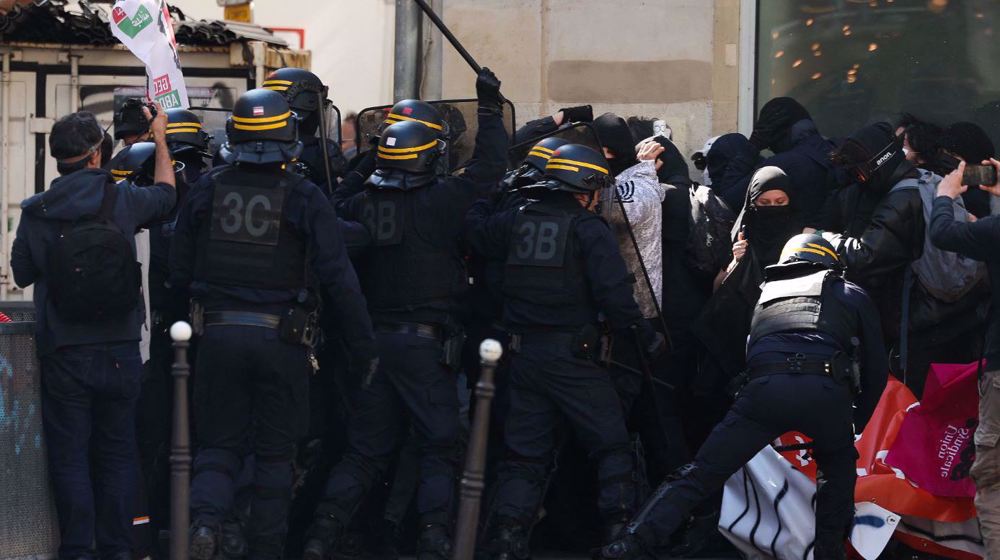
French police bludgeon students protesting budget cuts in Paris
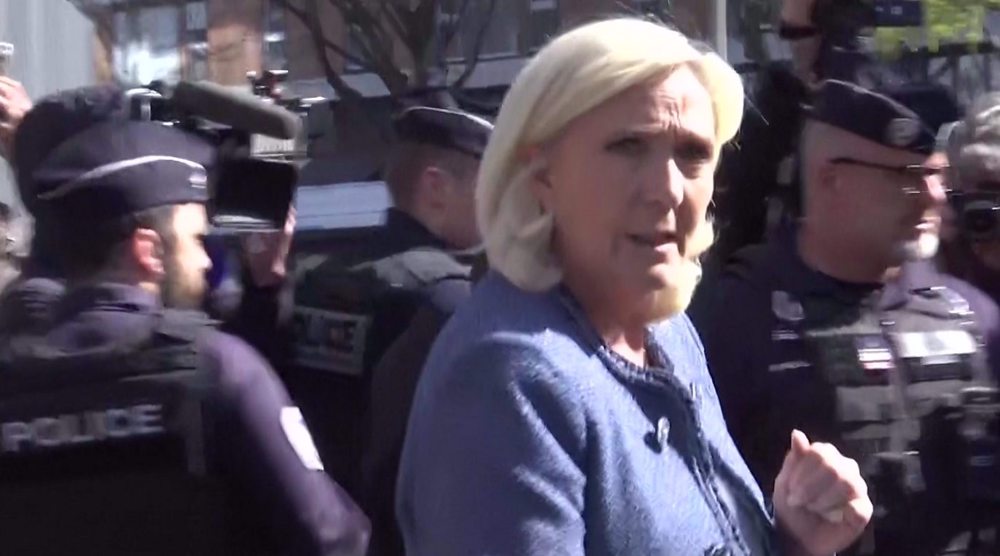
French far-right leader Le Pen barred from presidential race after embezzlement conviction

Tens of thousands protest racism, support Gazans in Europe
China slams US for unilateralism, protectionism, economic bullying with tariffs
‘Cutting-edge’: Iran says Arash-2 suicide drone will wipe out all threats within 2,000km range
Top Israeli diplomat expelled from African Union summit
Iran says not received US response yet to ‘generous offer’
VIDEO | Lebanese civilian killed as Israel strikes south in violation of ceasefire
VIDEO | Moroccans protest against Israel’s genocidal war in Gaza, US support
VIDEO | Less people visiting US due to restrictions
VIDEO | Press TV's news headlines


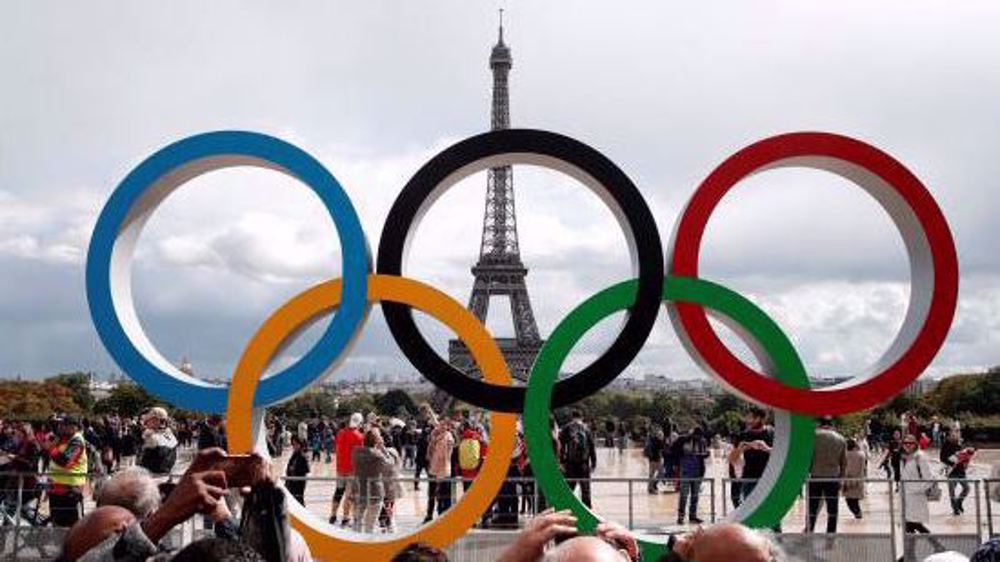
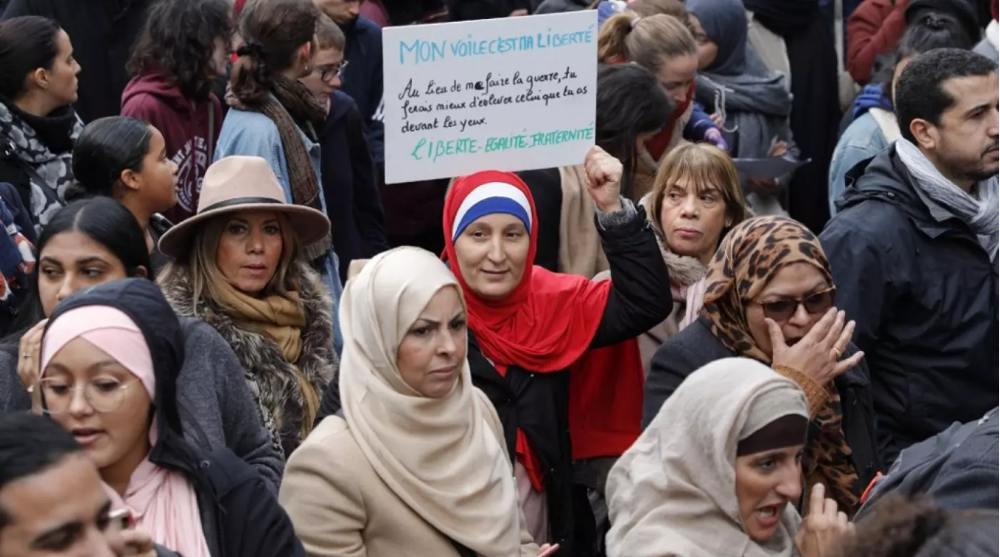
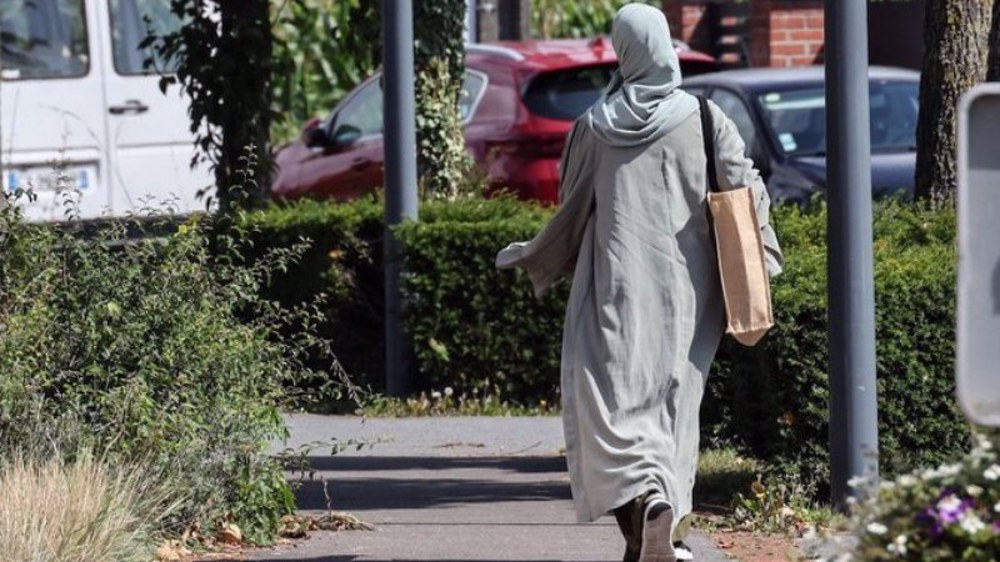
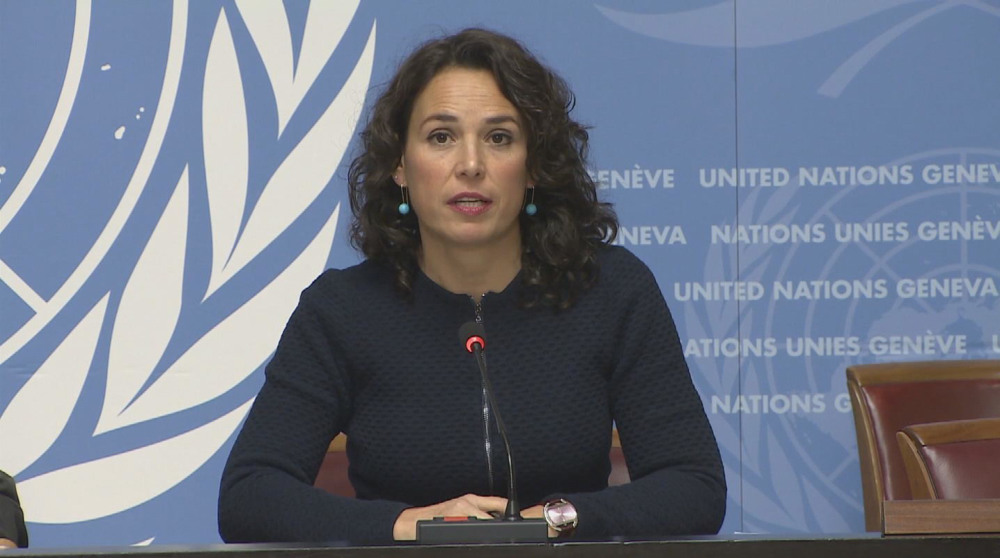




 This makes it easy to access the Press TV website
This makes it easy to access the Press TV website